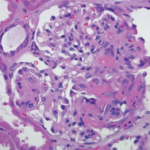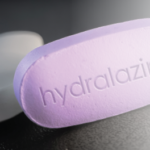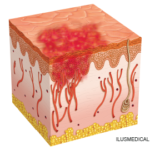Encouraging results have been collected recently for the use of rituximab, anti-IL6 tocilizumab and intravenous immunoglobulin (IVIg) in systemic sclerosis, offering the hope of more options to patients who fail first-line therapy, which Dr. Varga said remains mycophenolate mofetil.
In one of the more recent studies, refractory patients with active diffuse cutaneous systemic sclerosis were treated with IVIg, and the results were similar to those that MMF can produce, researchers found.6
ad goes here:advert-1
ADVERTISEMENT
SCROLL TO CONTINUE
But Dr. Varga emphasized that “Phase 3, randomized controlled trial data are needed.”
Thomas R. Collins is a freelance medical writer based in Florida.
ad goes here:advert-2
ADVERTISEMENT
SCROLL TO CONTINUE
References
- Mahr A, Batteux F, Duval X, et al. Brief report: Prevalence of antineutrophil cytoplasmic antibodies in infective endocarditis. Arthritis Rheumatol. 2014 Jun;66(6):1672–1677.
- Boils CL, Nasr SH, Walker PD, et al. Update on endocarditis-associated glomerulonephritis. Kidney Int. 2015 Jun;87(6):1241–1249. doi: 10.1038/ki.2014.424. Epub 2015 Jan 21.
- Jayne D. Successful steroid replacement in ANCA-associated vasculitis with C5a receptor inhibitor CCX168 in phase 2 randomized trial (CLEAR) Abstract No. MO039). 53rd European Renal Association—European Dialysis and Transplant Association (ERA-EDTA) Congress. Vienna, Austria. 2016 May 23.
- Oldham JM, Ma SF, Martinez FJ, et al. TOLLIP, MUC5B, and the Response to N-Acetylcysteine among Individuals with Idiopathic Pulmonary Fibrosis. Am J Respir Crit Care Med. 2015 Dec 15;192(12):1475–1482.
- Gao L, Emond MJ, Louie T, et al. Identification of rare variants in ATP8B4 as a risk factor for systemic sclerosis by whole-exome sequencing. Arthritis Rheumatol. 2016 Jan;68(1):191–200.
- Poelman CL, Hummers LK, Wigley FM, et al. Intravenous immunoglobulin may be an effective therapy for refractory, active diffuse cutaneous systemic sclerosis. J Rheumatol. 2015 Feb;42(2):236–242.


